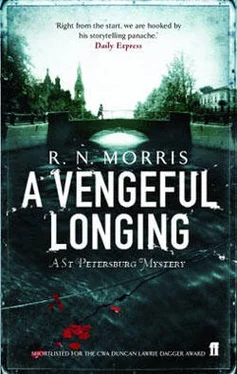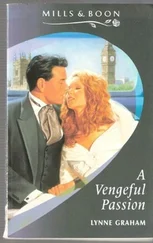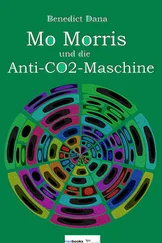R. Morris - A Vengeful Longing
Здесь есть возможность читать онлайн «R. Morris - A Vengeful Longing» весь текст электронной книги совершенно бесплатно (целиком полную версию без сокращений). В некоторых случаях можно слушать аудио, скачать через торрент в формате fb2 и присутствует краткое содержание. Год выпуска: 2008, ISBN: 2008, Издательство: Faber & Faber, Limited, Жанр: Исторический детектив, на английском языке. Описание произведения, (предисловие) а так же отзывы посетителей доступны на портале библиотеки ЛибКат.
- Название:A Vengeful Longing
- Автор:
- Издательство:Faber & Faber, Limited
- Жанр:
- Год:2008
- ISBN:9780571232536
- Рейтинг книги:3 / 5. Голосов: 1
-
Избранное:Добавить в избранное
- Отзывы:
-
Ваша оценка:
- 60
- 1
- 2
- 3
- 4
- 5
A Vengeful Longing: краткое содержание, описание и аннотация
Предлагаем к чтению аннотацию, описание, краткое содержание или предисловие (зависит от того, что написал сам автор книги «A Vengeful Longing»). Если вы не нашли необходимую информацию о книге — напишите в комментариях, мы постараемся отыскать её.
A Vengeful Longing — читать онлайн бесплатно полную книгу (весь текст) целиком
Ниже представлен текст книги, разбитый по страницам. Система сохранения места последней прочитанной страницы, позволяет с удобством читать онлайн бесплатно книгу «A Vengeful Longing», без необходимости каждый раз заново искать на чём Вы остановились. Поставьте закладку, и сможете в любой момент перейти на страницу, на которой закончили чтение.
Интервал:
Закладка:
‘He acted without my authorisation! That would be to reward him. Really you are quite impossible, Porfiry Petrovich. You come in here up in arms against him, and now here you are taking his side.’
‘One must be flexible. Of course, we could simply communicate his suspicions to the Third Section and allow them to take over.’
‘Do you really wish to involve those snakes?’
‘If there is a secret plot against the state, they are the correct office to deal with it.’
‘I don’t like them. They make me nervous.’
‘Why, Nikodim Fomich? Surely you have nothing to fear from them?’
‘No more than you, Porfiry Petrovich.’ Nikodim Fomich gave his friend a wounded look. ‘I disapprove of their methods. There is too much reliance on dirty tricks.’
‘They would claim that their methods are necessary, especially since the assassination attempt on our beloved Tsar. They are fighting the enemies of our way of life, men — and women — who have shown themselves prepared to stop at nothing.’
‘Yes, yes, I understand all that. Even so. .’
‘Perhaps you will find that you have no choice. Once this goes before the disciplinary board, they may well decide that Salytov’s suspicions require further investigation. Indeed it could possibly end in a commendation for him.’
‘You cannot be serious, Porfiry Petrovich?’
Porfiry shrugged. ‘Who knows what view they will take of the matter.’
‘Then what do you suggest I do?’
‘You must do whatever you feel is necessary.’
‘I do so hate it when you say that, Porfiry Petrovich.’ Nikodim Fomich seemed once again to have been possessed by his bad-tempered double. He resolutely avoided Porfiry’s eye.
9
As Martin Meyer’s foot pressed down on the first board of the veranda, the empty dacha groaned in protest. The veranda had been cleaned, the wrought-iron chairs set right and replaced around the marble-topped table. Polina . Meyer’s glance skimmed across the table towards the door, as if expecting it to open, wife and son coming out to meet him. But, of course, he had to cross the devastated space himself and place his own hand on the door to open it.
As he entered the interior of the dacha, an alien silence confronted him. It was as if the house had stopped breathing. The silence unsettled him; he felt it as something malign and unfathomable. He cast his gaze about as if looking for it. And then, he saw it — or rather the source of it: the grandfather clock, which stood, unwound, untended, a film of dust dulling its cherry wood surface; dumbstruck, emanating the silence that judged him.
He stood unmoving in the centre of the room, listening. At last, he began to hear the small sounds that possessed the dacha in the absence of humanity: the scratching of mice, the scuttling of insects, the clicks and creaks of the timbers adjusting to the sun’s transit through the day. The wooden cottage acted like a sounding box, picking up and amplifying these sounds until he, in the centre of it, shook with their reverberations.
The convulsion released him from his fearful immobility. He walked the length of the room, each footfall a hammerblow on the past, irreversible. His steps took him only to the piano, the lid still lifted, the album of folk songs open on the music rest. The keyboard seemed to possess a strange resilience; he had the feeling that the keys would not yield to his touch were he to lay his fingers on them. But a kind of horror prevented him from trying. The instrument had always been hers, and so much represented her that it had taken on the significance of her remains. To press a key would have felt like a desecration. He did not have the right, no one had, he least of all. Besides, he couldn’t play, had no feeling for music at all.
He stood over the keyboard, looking down at it, willing it to sound of its own accord. Then, unexpectedly, his hand reached out and he pressed a key in the centre of the keyboard. His touch was gentle. The note it produced, faltering and awed. He pressed again, more firmly, on the same key. The inhuman brightness of the note this time appalled him. A terrible pressure welled inside him, an expanding force in his chest. Then the tears came. They fell on to the piano keys. It was almost as if he expected them to depress the keys and cause the hammers to strike, with such a heavy, laden force did he imagine his tears falling. But, of course, this remained a sentimental fantasy. The tiny puddles spread, weightless, noiseless, on the ivory.
With the clock’s ticking suspended, it seemed that he existed outside time. There was a strange sense too of squaring up to the future. How long it was before he turned his back on the piano, he could not say. Nor how long it took him to cross the room and enter his study. It seemed that he was moving through a more viscous element than he was used to, one charged with hostility.
He could tell immediately that the room had been interfered with. They had been there, riffling through his papers. The lid of the escritoire was open, the drawer pulled out. He pulled it further and it fell out of his hands on to the floor with a hooligan clatter. Meyer’s hands shot up to cover his ears. His body writhed in an evasive flinch. But there was nothing to evade, except the noise and its aftermath. When that had finally died, he sank to a crouch to sort the debris. With the new slowness that characterised all his movements now, the infinite patience of a man without purpose, he put the scattered papers back into the drawer. The realisation came upon him gradually: they had taken all the photographs. The blank that was his marriage, his family, his life, was complete. They had even, he discovered, taken the one recourse left to him, the small bottle that would allow him to cover one blankness, agonising and self-aware, with another, blissful and oblivious.
They had left him with nothing.
‘Yes, come in, Pavel Pavlovich,’ said Porfiry, looking up from behind his desk. He winced a perfunctory smile. ‘I have a task for you.’ He shook a thick sheaf of papers for Virginsky to take. ‘These have just come in from Moscow. They are the lists of relevant pupils from all the private boarding schools in Moscow.’
Virginsky took the sheets almost reluctantly. There was something self-conscious about his movements as he scanned them. He said nothing.
‘I wish you to look for the name Golyadkin on the lists,’ continued Porfiry. ‘And to draw up a secondary list of all the boys who were ever in the same class as him. It should not be so difficult. There will be a certain amount of re-duplication as the pupils move up the years.’
‘Of course.’
‘An investigation may progress in a number of ways. There will always be times when our work is more laborious than otherwise. A crime is often solved when a connection is made between the victim and the perpetrator. Very rarely do these connections leap out at us. We must go looking for them.’
Virginsky nodded but seemed reluctant to move away and begin the task. ‘Porfiry Petrovich,’ he said at last, tentatively.
‘Yes? What is it?’
‘My father knew Setochkin.’
‘I see.’ Porfiry Petrovich sat up sharply. ‘Why did you not tell me this before?’
Virginsky could not answer, except by colouring deeply.
‘Or let me put it another way, why are you telling me now?’
‘I felt sure there was nothing in it. I wished to protect my father from unnecessary inconvenience.’
‘How very thoughtful of you. However, something has changed your mind?’
‘There is another connection you should be aware of. One that may make the first seem less coincidental.’
Porfiry inclined his head, waiting, his expression severe.
Читать дальшеИнтервал:
Закладка:
Похожие книги на «A Vengeful Longing»
Представляем Вашему вниманию похожие книги на «A Vengeful Longing» списком для выбора. Мы отобрали схожую по названию и смыслу литературу в надежде предоставить читателям больше вариантов отыскать новые, интересные, ещё непрочитанные произведения.
Обсуждение, отзывы о книге «A Vengeful Longing» и просто собственные мнения читателей. Оставьте ваши комментарии, напишите, что Вы думаете о произведении, его смысле или главных героях. Укажите что конкретно понравилось, а что нет, и почему Вы так считаете.












